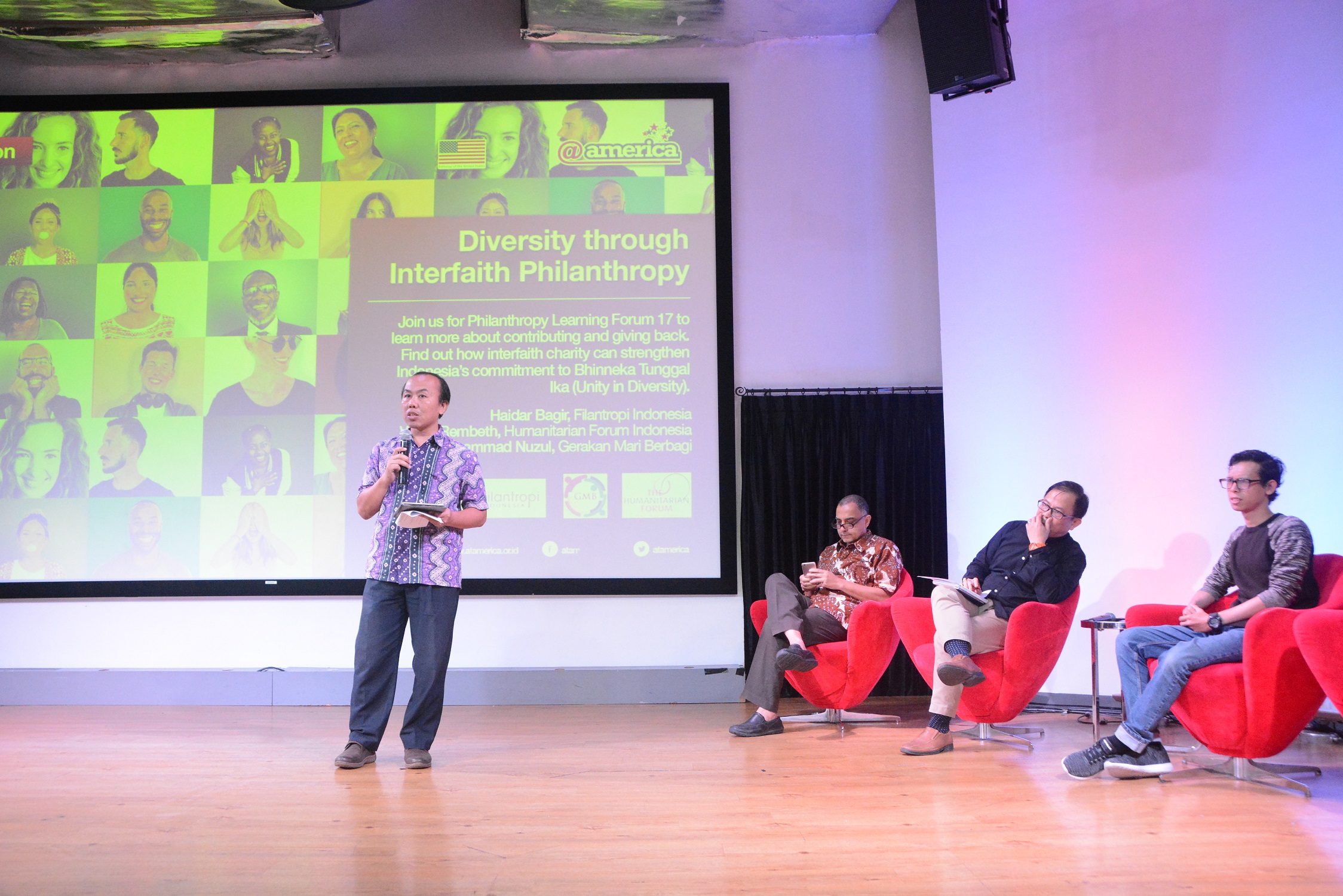Juni 9, 2017
[Philanthropy Learning Forum] Promoting Diversity through Interfaith Philanthropy
Hate speech against certain religions and ethnicities has been increasing in our society recently. This has increased violence, intolerance and discrimination in the name of religion. In contrast with this situation, or perhaps because of, the amount of philanthropic activities by communities, groups and organizations affiliated with certain religions is also growing rapidly. Although they are based on distinct religions, the sharing and assistance activities by these institutions are conducted without discriminating between groups, religions or race.

Recognizing that interfaith philanthropy can be instrumental in creating harmony, tolerance and mutual cooperation, Filantropi Indonesia, in partnership with @america (US cultural centre based in Jakarta), raised the issue of inclusive philanthropy in the 17th Philanthropy Learning Forum held on the Tuesday the 6th of June 6, 2017. The theme was "Promoting Diversity through Interfaith Philanthropy". There were three speakers at the event, Haidar Bagir from Filantropi Indonesia, J. Victor Rembeth from Humanitarian Forum Indonesia (HFI), and Muhammad Nuzul from Gerakan Mari Berbagi (GMB).
For Haidar, there should be no boundaries if you want to engage in philanthropy. It is wrong to say that zakat is only for Muslims, and that philanthropic activities undertaken by Muslims should be limited to helping only fellow Muslims. He stressed that dividing humanity according to their religions is not justified within the Islamic religious tradition. He reminded the audience that Allah teaches humans to be fair, which means to be morally good and to act with kindness towards all religions. He concluded with the observation that interfaith giving is the key to resisting hate-based radicalism.

J. Victor Rembeth followed, explaining how the work of HFI is almost the same as philanthropy in prioritizing unity in diversity. He pointed out that the main task of humanitarian agencies is to humanize people and encourage empathy. Victor also explained the benefits of dialogue and interfaith discourse in upholding honesty. The example he gave was that of talking positively in front of people but then talking negatively behind them. HFI itself has experienced many cases where interfaith organizations have shown respect for each other in humanitarian issues, especially in times of disaster or emergency situations.
Muhammad Nuzul then shared the mission of his organization, GMB. He said the movement invites young people to feel first-hand the positive effects of helping others and sharing with others regardless of their background. GMB wants to teach that sharing in diversity must begin with oneself and only then can be transmitted to others.

Talking about interfaith philanthropy, it is not about the faith itself that is most important, but the values. It is important to clarify the point of view of religions in interfaith relations. Looking at the condition right now, various interpretations of the religious values make the discourse universal. Efforts to clarify religious values should not stop only on discourse, however. Organizations such as Filantropi Indonesia must persistently publish news and make conscious effort that demonstrates interfaith philanthropic activities. We must also utilize primary and higher education to teach students about living in a diverse community, as some of them are simply not aware of the context in which they live.

